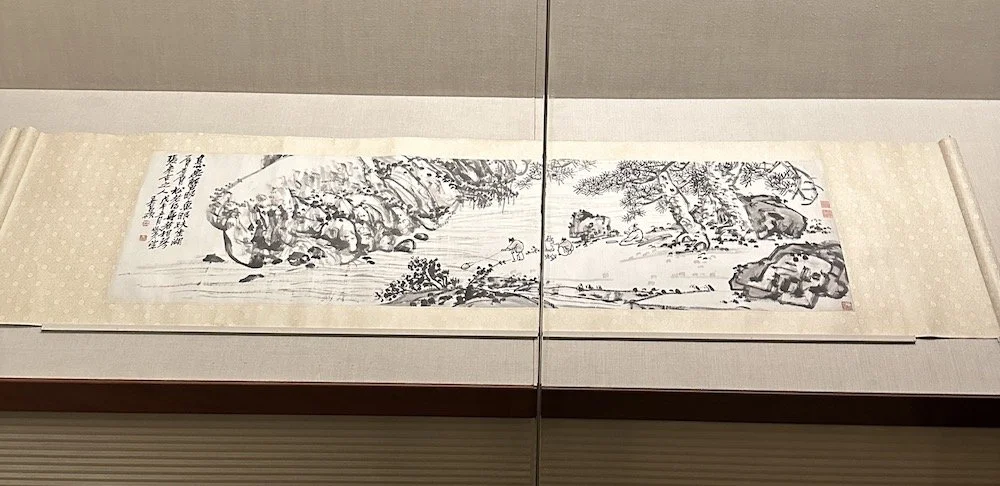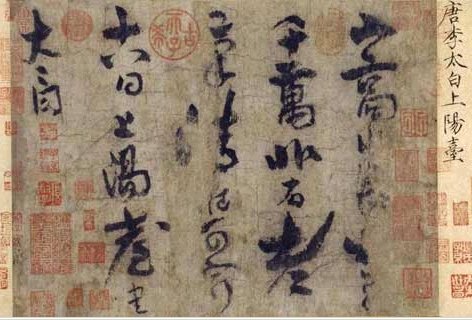“Brewing Tea” Painting and Poem on Chinese tea at the Met Museum
“Brewing Tea,” 1918, by Wu Changshuo (Chinese, 1844–1927), Handscroll; ink on paper, 15 9/16 x 54 in. (39.5 x 137.2 cm), Gift of Robert Hatfield Ellsworth, in memory of La Ferne Hatfield Ellsworth, 1986, The Metropolitan Museum of Art.
Everytime I attend an exhibition of classical or ancient Chinese arts I’m always looking for evidence of tea since tea is such a big part of Chinese culture.
On a recent trip to the Met with a friend, we stopped by an exhibit on Chinese landscape paintings from the collection focused on painting and poetry, “Vision and Verse: The Poetry of Chinese Painting” and I was delighted to come across this scroll painting with original poem titled “Brewing Tea” which as the title suggests depicts people enjoying tea in nature.
Close-up on the tea brewing and drinking part of the painting.
Situating the painting and tea appreciation in the classical Chinese gentleman culture, from the curator commentary:
Wu's image of a scholar seated beside a qin (zither) savoring freshly brewed tea celebrates the timeless literati ideals of refinement, withdrawal, and self-cultivation.
Even though this painting from 1918 is a fairly modern painting (in terms of timeline not form, style, or subject matter), the artist Wu Changshuo, choose to keep the classical form of a scroll painting uniting the three forms of Chinese arts: painting, calligraphy, and poetry.
As the exhibit notes points out:
For painters who were themselves poets, one of the greatest ambitions was to create a work that combined their original poetry, calligraphy, and painting into a coherent artwork, known as the “three perfections” in Chinese—a chance to stand on the shoulders of their poetic heroes and add their voice to the tradition.
I enjoyed the tea poem on the painting and intrigued with the two English translations available via the Met.
Close-up on the poetry section of the scroll painting showcasing the calligraphy
When the painting was on display in the exhibit Vision and Verse: The Poetry of Chinese Painting (it is currently not on display at the museum at the moment), the placard next to the painting had this translation of the poem by Shi-yee Liu, Assistant Research Curator of Chinese Art at the Met:
Boiling stream water till it bubbles like the eyes of crabs and fish,
Sitting in meditation by lakes and rocks.
Old pines look like humans blessed with longevity.
The one playing the qin hails from antiquity.
Fascinatingly, however, on the Met’s website, the English translation by Wen Fong is different:
Watching the bubbling spring water,
Sitting beside the stony edge of the lake,
Old pines resemble ancient sages,
A qin lies by a man from the past.
I personally like Shi-yee Liu’s translation better but see the poetry in each of the translations. Literary translation is hard but especially poetry!
You can watch a short video of viewing the whole painting on Tranquil Tuesday’s instagram account here.







